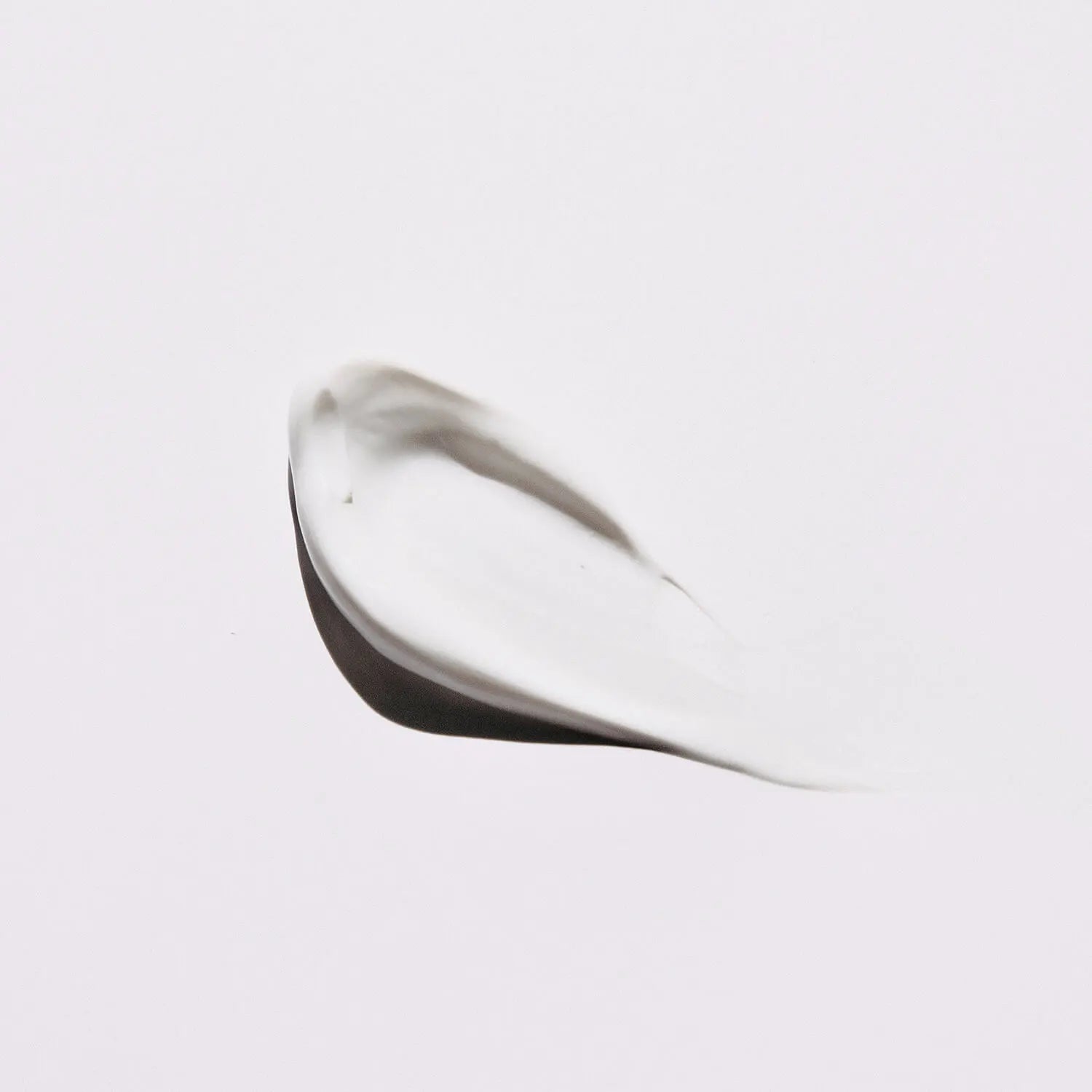
Face cream without emulsifiers - How to help your skin
Do you know the dilemma when you regularly apply cream, but your skin still feels tight and dries out more and more? When your skin becomes more sensitive and irritated, reddens or itches despite constant application of cream? What is behind this vicious circle?
The reasons can be complex. It may be due to a congenital neurodermatitis disposition - but the ingredients in your cosmetics may also be the cause. Additives that are not even necessary are particularly problematic here. In addition to preservatives, fragrances and alcohol, these are mainly emulsifiers in our everyday cosmetics.
What are emulsifiers?
A commercially available face cream contains watery and oily components that cannot be mixed together without a "connector". The task of the connector is taken over by emulsifiers. They have the ability to hold the oily and watery components together in a chemically stable manner as phases of an emulsion.
PEG emulsifiers in conventional cosmetics
Emulsifiers in conventional cosmetics mostly consist of polyethylene glycols (PEGs). These synthetic molecular compounds are made from the extremely toxic and environmentally harmful petroleum derivative ethylene oxide. PEGs can trigger allergies and are potentially carcinogenic and mutagenic.
Emulsifiers in natural cosmetics
Esterified vegetable fatty acids are usually used as emulsifiers in natural cosmetics. They almost always consist of industrially processed, ultra-high-temperature refined palm oil. For years, palm oil has been rightly denounced as harmful to the environment and health: huge palm oil plantations are destroying the rainforest on a large scale, depriving people and animals of their livelihoods and accelerating climate change.
Why do emulsifiers harm the body?
Some of the emulsifiers used in natural cosmetics are also used as E-substances in the food industry. While emulsifiers in food were long considered harmless, they are now increasingly being criticized. According to new scientific findings, emulsifiers can upset sensitive metabolic processes in the body and, among other things, change the microbiotic bacterial colonization of our intestinal system (chronic irritable bowel syndrome). It is also worrying that genetically modified organisms can be used in the production of emulsifiers, which do not even have to be declared. However, the effects of these substances are still largely unexplored. Researchers are therefore calling for stricter controls on emulsifiers as food additives and are calling for intensive research into their side effects in long-term studies.
Why are emulsifiers harmful to the skin?

Emulsifiers do not just combine moisture and oils in a skin cream. As an undesirable side effect, emulsifiers are deposited in the skin and continue to emulsify there. They bind to the skin's own lipids of the protective skin barrier and release them from their solid bond. This leads to a washout effect. This means that the skin's own protective lipids are washed out of the skin the next time it comes into contact with water. As a result, the skin barrier becomes thinner and gradually porous, and can no longer perform its function. The washout effect has far-reaching consequences:
- The skin is less and less able to retain sufficient moisture. Instead, water increasingly escapes to the outside (increased transepidermal water loss). The skin dries out more and more, loses its elasticity and ages prematurely.
- The skin becomes permeable to harmful microorganisms such as bacteria or viruses from the environment. The foreign substances can even penetrate deeper layers of the skin and reach the organs and settle there (weakened immune system).
What ingredients are emulsifiers?
It is sometimes difficult to detect emulsifiers in a skin cream because these ingredients are hidden behind many cryptic names on the label. So just scan the barcode of your skin cream and look up what is behind it, for example on the Codecheck app. The following ingredients in the INCI declaration/ingredients list are often used emulsifiers:
- Ingredients in conventional cosmetics that begin with PEG- or end with –eth, e.g. Laureth 4, Ceteareth -15, PEG-8.
- Common natural cosmetic emulsifiers include sucrose stearate (also used in food as E 473), methyl glucose sequistearate, glyceryl stearate (citrate), cetearyl glucoside or hydrogenated palm glycerides.
facial care without emulsifiers
A life-saving solution to constantly applying cream to dry and problematic skin is either high-quality, cold-pressed facial oils or facial creams WITHOUT skin-weakening emulsifiers. According to the Cosmetics Regulation, these creams can be advertised as "emulsifier-free".
Water-free face balms such as Face Balm Amaranth based on untreated shea butter are also a valuable facial care product without skin-damaging emulsifiers.
Lecithins and phospholipids (INCI: Hydrogenated Phosphatidylcholine)
An emulsifier-free natural cosmetic alternative is plant-based phosphatidylcholine. Phosphatidylcholine ensures that the aqueous and fatty components of a formula combine. As a natural component of every cell membrane, it is also a particularly valuable, skin-identical active ingredient. The phosphatidylcholine used in myrto is obtained from sunflowers. Unlike conventional, exogenous emulsifiers, phosphatidylcholine does not have a drying effect, but rather improves the moisture retention of the skin's own protective layer. With its lamellar lipid structure, phosphatidylcholine precisely mimics the lamellar layer structure of the skin barrier. This biomimetic natural active ingredient is therefore ideal for rebuilding and strengthening a damaged skin barrier.
The phosphatidylcholine we use, with over 90% phospholipids, is incorporated directly into the skin barrier as a natural membrane substance. Phoshatidylcholine provides long-lasting moisture and protects the skin from moisture loss. It ensures a silky smooth, supple skin feel without being greasy. This means that it does not leave an unsightly greasy film on the skin after application.
beta-glucan and pectin
The emulsifier-free myrto face creams with pectin from plant-based fruit fibers and beta-glucan from the oat germ layer also follow another innovative concept. Fruit fibers made from pectin hold the oily and watery phases of a face cream together on the skin in a purely physical way, like in a grid, and stabilize the texture of the cream. Pectin also improves the skin's ability to bind moisture.
The natural ingredient beta-glucan in myrto creams and serums has been proven to strengthen the skin barrier. Beta-glucan penetrates into the deeper layers of the skin and has a long-lasting hydrating effect there. Beta-glucan helps to make the skin more elastic and resistant to environmental stress. Beta-glucan has an anti-inflammatory effect and improves the skin's own UV protection.
The myrto facial creams without the usual emulsifiers are the saving solution, especially for sensitive, very dry and problematic skin. They strengthen the healthy skin functions sustainably and ensure long-term smooth, soft and optimally cared for skin. Bring your skin back into balance. It will thank you.





